- Home
- W. W. Jacobs
His Lordship's Leopard: A Truthful Narration of Some Impossible Facts Page 7
His Lordship's Leopard: A Truthful Narration of Some Impossible Facts Read online
Page 7
CHAPTER VI.
IN WHICH THE BISHOP OF BLANFORD RECEIVES A BLACK EYE.
"The Bishop of Blanford!" announced the page, as he threw open the doorof Sir Joseph Westmoreland's private consulting-room.
Sir Joseph came forward to meet his distinguished patient, and said afew tactful words about having long known his Lordship by reputation.The Bishop smiled amiably, and surveyed the great London physicianthrough his glasses. The two men were of thoroughly opposite types: SirJoseph tall, thin, wiry, his high forehead and piercing blue eyeproclaiming a powerful mind well trained for the purposes of science;the Bishop short and broad of stature, with an amiable, rounded, ruddyface, and the low forehead which is typical of a complacent dogmatism.
An ecclesiastic had come to humbug a man of science. Could he do it? Notreally, he told himself; but then Sir Joseph was so courteous.
"I ventured to consult you," said his Lordship, in reply to thephysician's questions, "because I feel the need of rest, absolute rest.The duties of my diocese are so onerous--and--er--in short--youunderstand."
"Quite so, quite so," said Sir Joseph, who understood that there wasnothing whatever the matter with his patient.
"To be entirely alone," continued the Bishop, "for a space of time,without any distractions--not even letters."
"Most certainly not letters, your Lordship."
"How wonderful you men of science are!" murmured the ecclesiastic. "Youunderstand me exactly. Now if I could have six weeks--or even a month."
"A month, I should say," replied Sir Joseph. "After that you might beginto receive your correspondence."
"Yes, a month would do--that is--er--where would you advise me to go?"
"What climate generally suits you best?"
"I--er--was thinking of Scotland."
"In May?" queried the physician.
"A friend would lend me his country place--and I--er--should be soentirely alone."
"Quite so. Nothing could be better," replied his adviser, who, like allmen who have risen in their profession, had attained an infiniteknowledge of human nature.
"And you will be so kind as to write me a note, stating youropinion--about the rest--and--er--immunity from letters--and all that,"said the Bishop, depositing with studied thoughtlessness a double fee onthe table, "for the benefit of my--my family. She is--they are--Imean--that is, she might not realise the importance of absolute rest,and"--as a brilliant thought occurred to him--"and you'll give me aprescription."
"Certainly," said Sir Joseph. "I'll do both now."
"Thanks," murmured the Bishop, and, receiving the precious documents,he took his leave.
The great physician's letter he put carefully in an inside pocket; theprescription he never remembered to get filled.
"A month," he said to himself; "that ought to be time enough." And hehailed a cab, and driving promptly to the nearest American steamshipoffice, he engaged a passage forthwith.
"I wonder what Sir Joseph thought about it," he meditated, as he paidfor his ticket. In this respect, however, he did his adviser aninjustice. Sir Joseph never thought about it at all. It was not part ofhis profession.
* * * * *
Most people would have united in saying that the Bishop of Blanfordwas an exceedingly fortunate man. No one was possessed of an estateboasting fairer lawns or more noble beeches, and the palace was asingularly successful combination of ecclesiastical antiquity andnineteenth-century comfort. The cathedral was a gem, and its boy choirthe despair of three neighbouring sees, while, owing to a certainamount of worldly wisdom on the part of former investors of therevenues, the bishopric was among the most handsomely endowed inEngland. Yet his Lordship was not happy. All his life long there hadbeen a blot upon his enjoyment, and that blot was his sister, MissMatilda Banborough.
Miss Matilda was blatantly good, an intolerant virtue that accounted formultitudes of sins in other people. Her one ambition was to bring up theBishop in the way she thought he should go, and hitherto she had beenwonderfully successful. All through his married life she had resided atthe palace and been the ruling power, and when his wife had died twentyyears before, snuffed out by the cold austerity of the Bishop's sisterand the ecclesiastical monotony of Blanford, Miss Matilda had assumedthe reins of power, and had never laid them down.
The Bishop's wife had been a weak, amiable woman, and her last consciousrequest was to be buried in the sunlight, but her sister-in-lawremarked that "her mind must have been wandering, for though Sarah wasvacillating, she was never sacrilegious." So they buried her in theshadiest corner of the cloisters, and put up a memorial brass settingforth all the virtues for which she was not particularly noted, andentirely omitting to mention her saving grace of patience under greatprovocation.
Since that time the Bishop's son, Cecil, had been a bone of contentionat Blanford. His aunt had attempted to apply the same rigorous treatmentto him that had been meted out to his father; but the lad, whose spirithad not been broken, refused to submit. At first, in his boyhood days,his feeling was chiefly one of awe of Miss Matilda, who always seemed tobe interfering with his pleasure, and who made the Sabbath anything buta day of peace for the restless child. Then came long terms at school,with vacations to which he never looked forward, and then four years atthe university, when the periods spent at Blanford became more dreaded.
Cecil tried bringing home friends, but there were too many restrictions.So, after graduation, he drifted off to London, where his auntprophesied speedy damnation for him, and never quite forgave him becausehe did not achieve it. During these years his visits to the palacebecame fewer and fewer. Then he wrote his novel, which proved thebreaking-point, for Miss Matilda forced his good-natured, easy-goingfather to protest against its publication in England, and the young man,in impatient scorn, had shaken the dust of his native country from hisfeet and departed to the United States, bearing his manuscript with him.
That was a year ago, and Cecil had never written once. His publisherswould not give his address, and if he received the letters sent throughtheir agency, he never answered them. His father pined for him. His auntwaxed spiteful, and so firm was her domination over the Bishop that henever dared tell her of his secretly formed plan of going to America tofind his son. Hence his visit to the great London physician.
The little plot worked out better than he could have hoped. Sir Joseph'sletter proved convincing, for Miss Matilda had a holy awe of constitutedauthority, and would no more have thought of disobeying its injunctionsthan she would of saying her prayers backwards. His Lordship accordinglywent to London, and disappeared for a month--ostensibly to Scotland, inreality to America; and no one on the Allan liner suspected for a momentthat the little man in civilian's clothes, whose name appeared on thepassenger-list as Mr. Banborough, was the Bishop of Blanford.
His thirty days of grace allowed him but two weeks in the States, andhere fortune seemed to have deserted him, for, on his arrival, helearned that his son had gone South. A wild-goose chase to Washingtonconsumed much valuable time, and, with only forty-eight hours to spare,he arrived at Cecil's quarters in New York on the day when that younggentleman was madly driving a Black Maria out of the city.
Discouraged and disheartened at his lack of success, the Bishop took atrain for Montreal, and found himself, about ten o'clock on thatevening, owing to faulty orders and a misplaced switch, stranded at alittle station just on the dividing line between Canada and the UnitedStates.
"And when can I proceed on my journey to Montreal?" he queried of thestation-master.
"Sure I don't know," responded that individual briefly. "We're bound toget things cleared for the White Mountain Express if possible."
"And when is it due?" asked his Lordship.
"Eleven forty-five A.M., if she's on time."
"I think," said the Bishop, "that I'll remain for the night, and go onat a more seasonable hour to-morrow. Is there any one here who can putme up?"
The station-master scratched his
head in perplexity, glancing off to thehorizon where glimmered a few lights from scattered farmhouses.
"I dunno what to say," he replied. "I reckon Deacon Perkins would haveput you up," pointing to the nearest light, some mile and a halfdistant, which at that moment disappeared, "but," added the official,"it looks as if he'd gone to bed. Folks don't stay up late round here.There ain't much to do."
"But," protested his Lordship, "there's a story over this office. Surelyyou can arrange something for me."
"Well, you see it's this way," said the man. "There's two policeofficers and a journalist has reserved it for to-night, 'cause they's onthe lookout for a batch of prisoners 'scaping to Canada. But if so be'syou wouldn't mind sleeping in the refreshment-room, I could let you havea mattress, and make you up a tidy bed under the bar."
The Bishop reflected that, though such quarters were hardly in keepingwith the dignity of an episcopal prince, they were better than nothing,and as he was travelling incognito it did not much matter. So hecheerfully accepted, and going out on the platform took a seat on thenarrow wooden bench that ran along the front of the station, and lighteda cigar to while away the time till the preparations for his retirementwere completed.
It was pitch-dark outside, and the presence of three glimmering pointsof light were the only indication of any other occupants of the bench.But he rightly conjectured that the smokers were the policemen and thejournalist of whom he had heard, and, having nothing better to do, heentered into conversation with them.
"Oh, yes," said Marchmont, for it was none other, "we've got a big jobon hand to-night, sir, if we pull it off."
"Is it uncertain, then?" asked the Bishop.
"Well, of course we don't know which way they're coming. There was asensational escape of a lot of Spanish spies from New York this noon.When I left we only knew they'd gone North. Since then they've beenheard of near the Hudson River. Of course it's practically certainthey'll make for Montreal, as it's the nearest point at which they havea consul, and my knowledge of human nature leads me to think they'lltake the most indirect route; so I came on here by the first train, andif we can catch them when the Express comes through to-night, it'll be agreat scoop, and certain promotion for me."
"Who compose the party?" asked his Lordship.
"The whole thing seems to be rather mysterious," said the journalist."There's a woman conspirator in it, and one or two men, but the identityof the leader, the man who planned the rescue and had the unparalleledaudacity to represent himself as one of our reporters, is quite unknownto the police."
"But you?" said the Bishop.
"Oh, I," replied Marchmont, "of course I could hazard a guess as to hisidentity." And putting his hand before his mouth, so that his twocompanions should not hear his words, he added, with a tone of triumphin his voice: "There's not the remotest doubt in my mind that the youngman who ran off with the Black Maria was none other than the Secretaryof the Spanish Legation."
"Ah," said his Lordship, who was getting bored, "very interesting, I'msure. I think I'll turn in now. Good-night." And a few minutes later hewas safely ensconced under the bar and in the land of dreams, where MissMatilda and a prison-van figured conspicuously.
After an interval of time, the Bishop was sleepily conscious of thearrival of a train, accompanied by a certain amount of excitement, butit was not till several hours later, when dawn was just beginning tobreak, that he was rudely awakened by some one attempting to appropriatehis resting-place. At the same moment he became conscious that aconsiderable uproar was going on in the station, and a voice from above,which he recognised as the journalist's, called out:
"Say! One of that gang's in the bar! I saw him come up to the door as Iwas lying in bed!"
Before the Bishop, however, became sufficiently wide awake to assimilatethoroughly these astonishing facts, the intruder, who was grotesquelyarmed with a can of hot coffee and a loaf of bread, deposited hisburdens, and falling upon the recumbent ecclesiastic, proceeded to situpon his head, forcing his face into the pillow, and rendering itimpossible for him to utter a single sound. The half light and thesuddenness of the attack had not permitted his Lordship to see thefeatures of his aggressor. He had, however, no intention of submittingtamely to such an unpardonable outrage; and when the station-master andthe two policemen, unaware of the proximity of the object of theirpursuit, had rushed through the room and out at the back door, and thestranger, releasing the Bishop, was preparing to fly also, his Lordship,forgetful of the professions of peace which his calling assumed, smotethe intruder lustily in the ribs. He received in return a smashing blowin the eye which made him see a multitude of stars, and before he couldrecover himself the stranger had seized the coffee and the loaf anddashed through to the front of the station.
The Bishop staggered to his feet, groping blindly about, while he heardthe voice of the journalist, who was leaning over the banisters in nightattire, calling vociferously to his companions that the man was escapingby the front.
"Did he hurt you?" he asked of the Bishop.
"Yes," replied his Lordship, still blinded by the force of the blow."But he got as good as he gave. I didn't have four years of athletics atthe 'varsity for nothing."
"Oh, they're sure to catch him," said the journalist
"I hope so," cried the Bishop, "for he richly deserves it."
It is probable, however, that his Lordship would have modified hisdesire for vengeance had he known that his aggressor was his own son.

_preview.jpg) Sailor's Knots (Entire Collection)
Sailor's Knots (Entire Collection)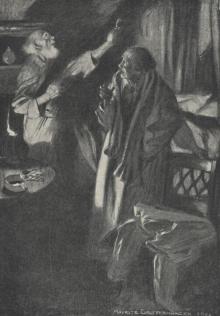 The Monkey's Paw
The Monkey's Paw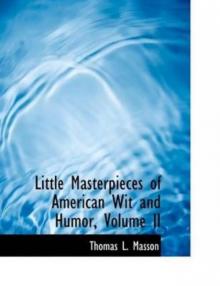 Little Masterpieces of American Wit and Humor, Volume II
Little Masterpieces of American Wit and Humor, Volume II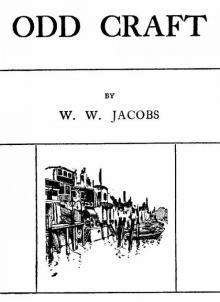 Odd Craft, Complete
Odd Craft, Complete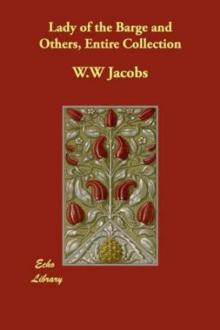 The Lady of the Barge and Others, Entire Collection
The Lady of the Barge and Others, Entire Collection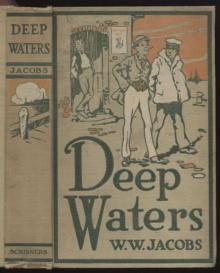 Deep Waters, the Entire Collection
Deep Waters, the Entire Collection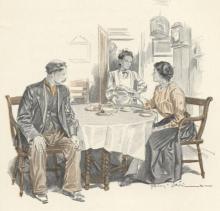 Three at Table
Three at Table Light Freights
Light Freights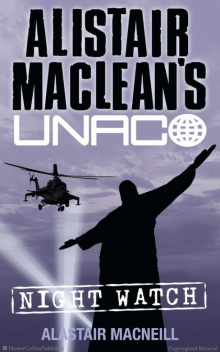 Night Watches
Night Watches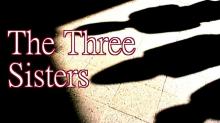 The Three Sisters
The Three Sisters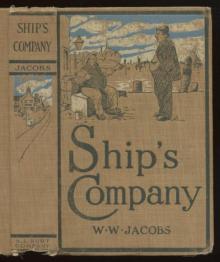 Ship's Company, the Entire Collection
Ship's Company, the Entire Collection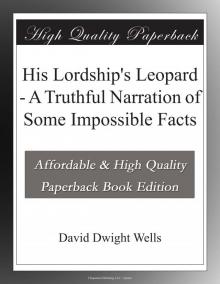 His Lordship's Leopard: A Truthful Narration of Some Impossible Facts
His Lordship's Leopard: A Truthful Narration of Some Impossible Facts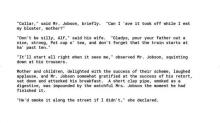 Fine Feathers
Fine Feathers My Man Sandy
My Man Sandy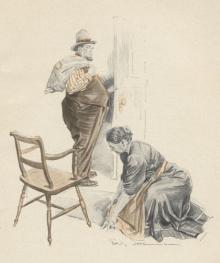 Self-Help
Self-Help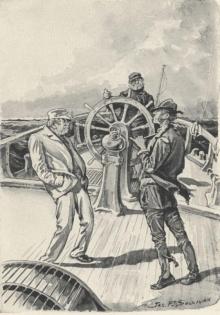 Captains All and Others
Captains All and Others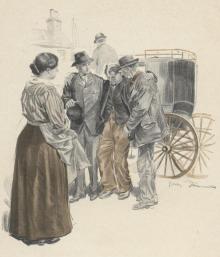 Back to Back
Back to Back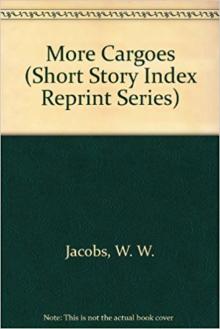 More Cargoes
More Cargoes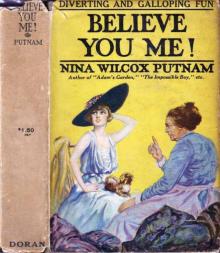 Believe You Me!
Believe You Me!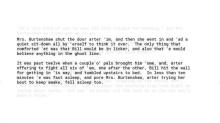 Keeping Up Appearances
Keeping Up Appearances The Statesmen Snowbound
The Statesmen Snowbound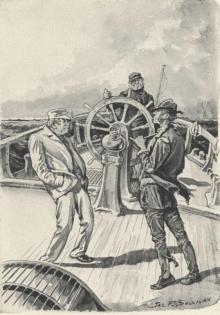 An Adulteration Act
An Adulteration Act The Old Soldier's Story: Poems and Prose Sketches
The Old Soldier's Story: Poems and Prose Sketches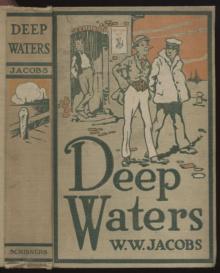 Husbandry
Husbandry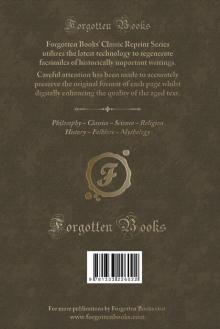 Love and the Ironmonger
Love and the Ironmonger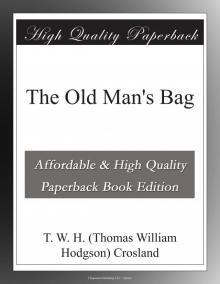 The Old Man's Bag
The Old Man's Bag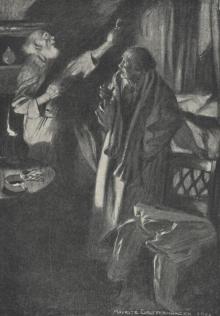 Dirty Work
Dirty Work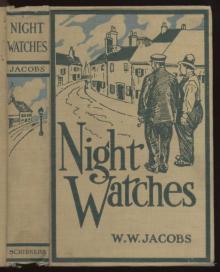 Easy Money
Easy Money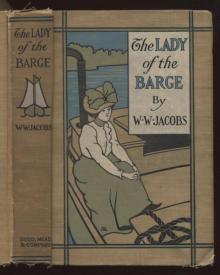 The Lady of the Barge
The Lady of the Barge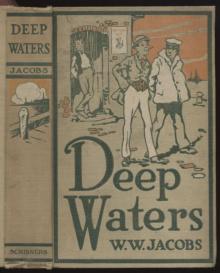 Bedridden and the Winter Offensive
Bedridden and the Winter Offensive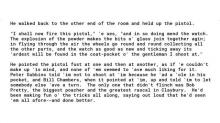 Odd Charges
Odd Charges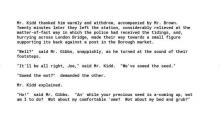 Friends in Need
Friends in Need Watch-Dogs
Watch-Dogs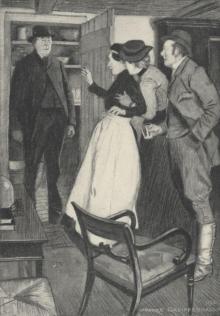 Cupboard Love
Cupboard Love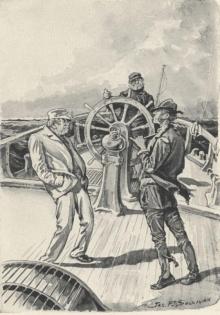 Captains All
Captains All A Spirit of Avarice
A Spirit of Avarice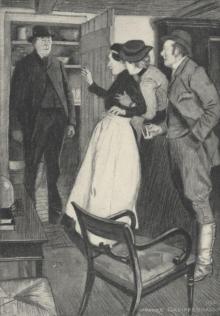 The Nest Egg
The Nest Egg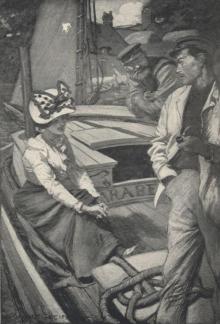 The Guardian Angel
The Guardian Angel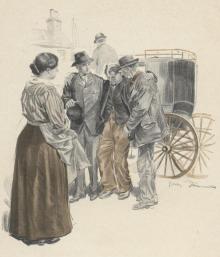 The Convert
The Convert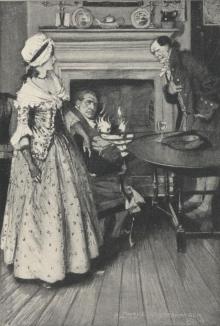 Captain Rogers
Captain Rogers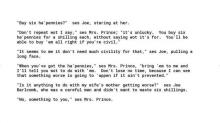 Breaking a Spell
Breaking a Spell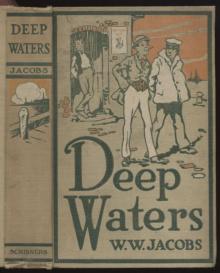 Striking Hard
Striking Hard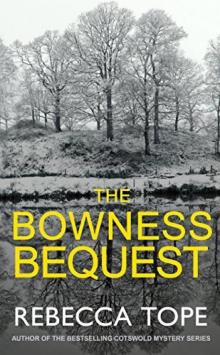 The Bequest
The Bequest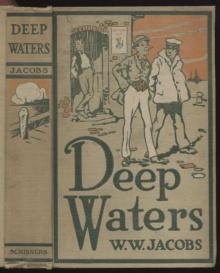 Shareholders
Shareholders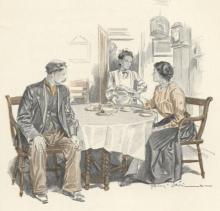 The Weaker Vessel
The Weaker Vessel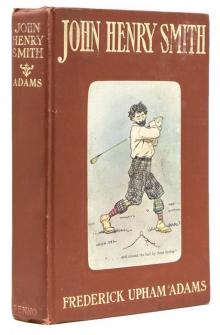 John Henry Smith
John Henry Smith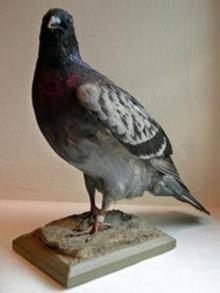 Four Pigeons
Four Pigeons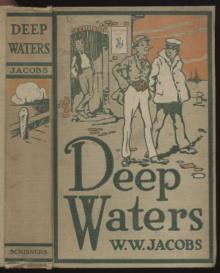 Made to Measure
Made to Measure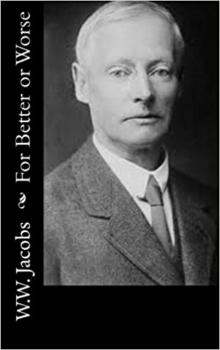 For Better or Worse
For Better or Worse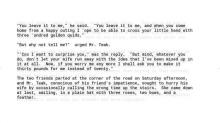 Fairy Gold
Fairy Gold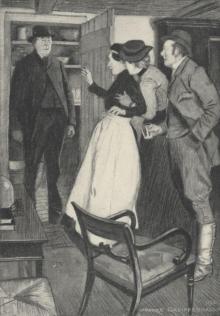 Family Cares
Family Cares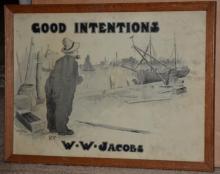 Good Intentions
Good Intentions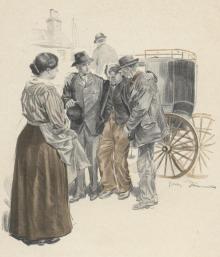 Prize Money
Prize Money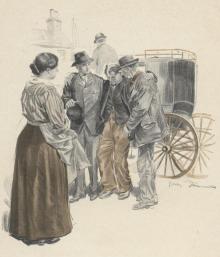 The Temptation of Samuel Burge
The Temptation of Samuel Burge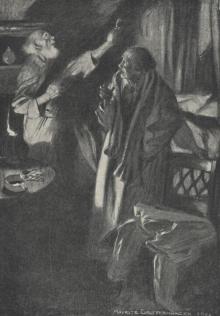 The Madness of Mr. Lister
The Madness of Mr. Lister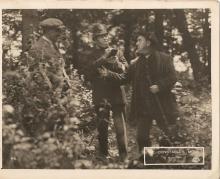 The Constable's Move
The Constable's Move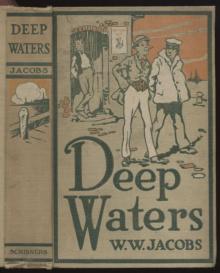 Paying Off
Paying Off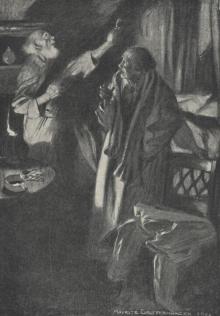 Double Dealing
Double Dealing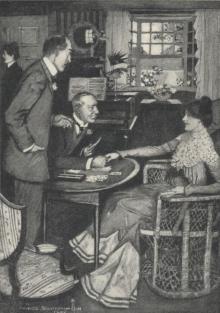 A Mixed Proposal
A Mixed Proposal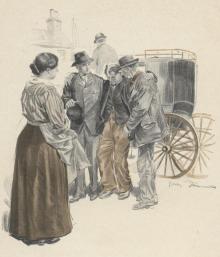 Bill's Paper Chase
Bill's Paper Chase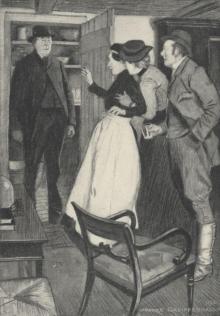 The Changing Numbers
The Changing Numbers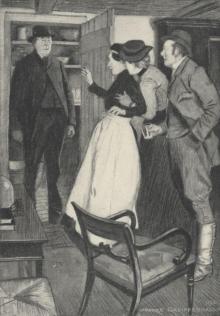 Over the Side
Over the Side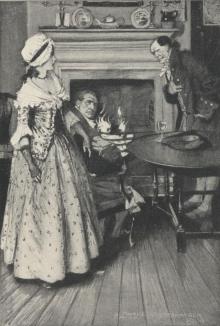 Lawyer Quince
Lawyer Quince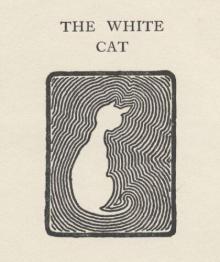 The White Cat
The White Cat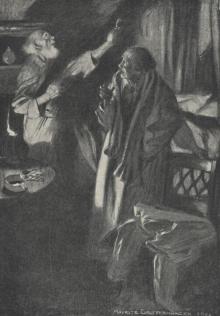 Admiral Peters
Admiral Peters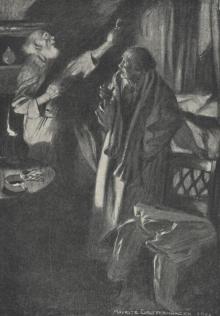 The Third String
The Third String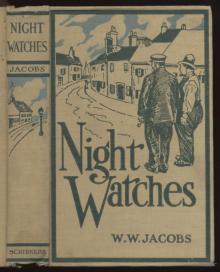 The Vigil
The Vigil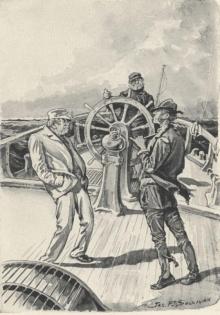 Bill's Lapse
Bill's Lapse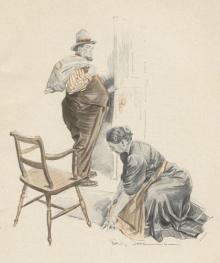 His Other Self
His Other Self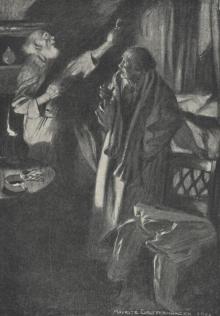 Matrimonial Openings
Matrimonial Openings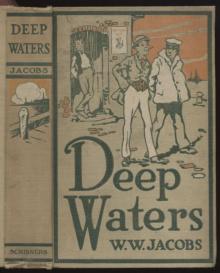 The Substitute
The Substitute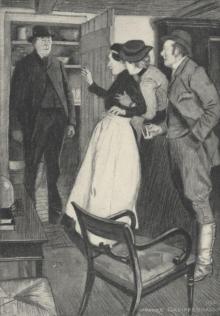 Deserted
Deserted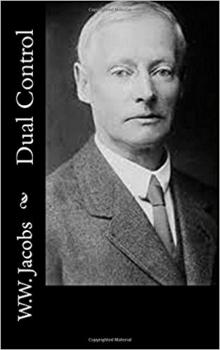 Dual Control
Dual Control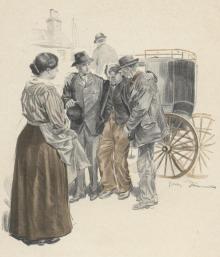 Homeward Bound
Homeward Bound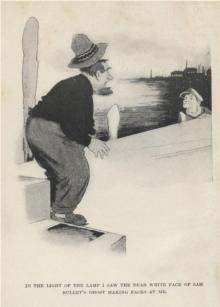 Sam's Ghost
Sam's Ghost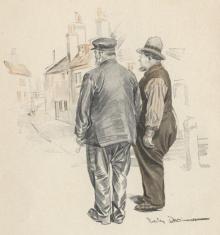 The Unknown
The Unknown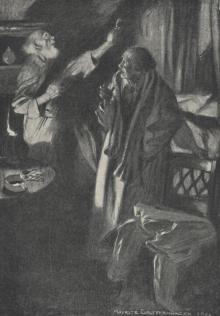 Stepping Backwards
Stepping Backwards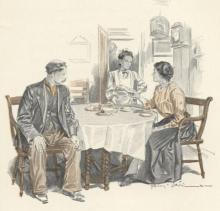 Sentence Deferred
Sentence Deferred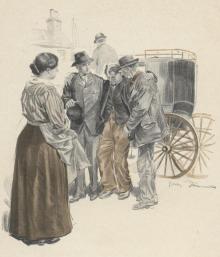 The Persecution of Bob Pretty
The Persecution of Bob Pretty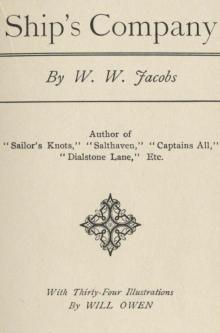 Skilled Assistance
Skilled Assistance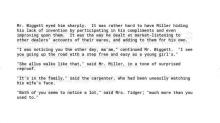 A Golden Venture
A Golden Venture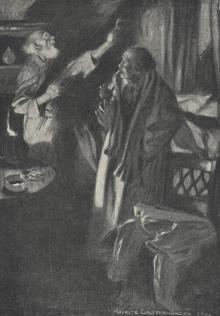 Establishing Relations
Establishing Relations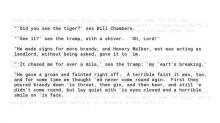 A Tiger's Skin
A Tiger's Skin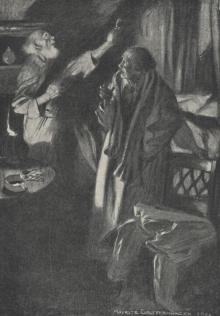 Bob's Redemption
Bob's Redemption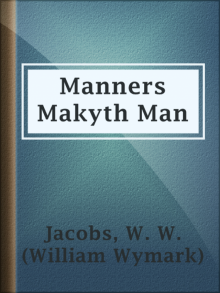 Manners Makyth Man
Manners Makyth Man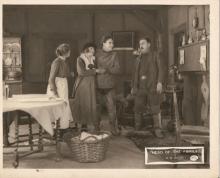 The Head of the Family
The Head of the Family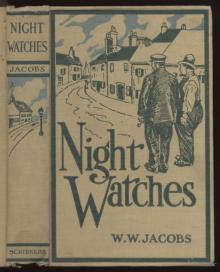 The Understudy
The Understudy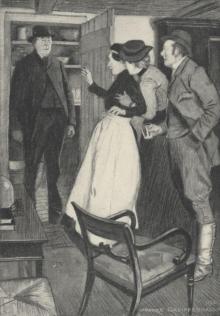 Odd Man Out
Odd Man Out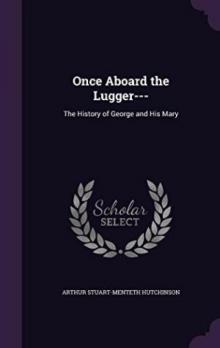 Once Aboard the Lugger-- The History of George and his Mary
Once Aboard the Lugger-- The History of George and his Mary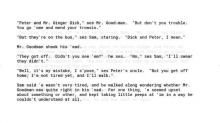 Peter's Pence
Peter's Pence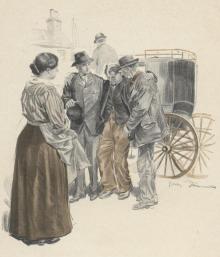 Blundell's Improvement
Blundell's Improvement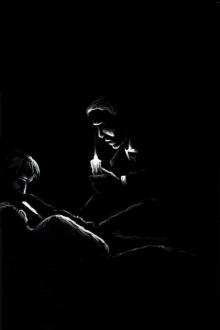 The Toll-House
The Toll-House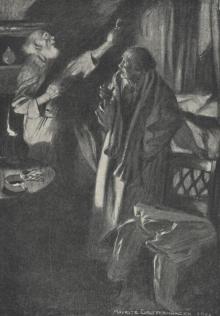 Dixon's Return
Dixon's Return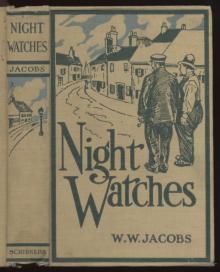 Keeping Watch
Keeping Watch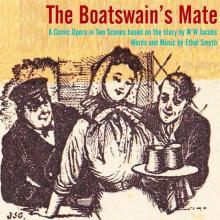 The Boatswain's Mate
The Boatswain's Mate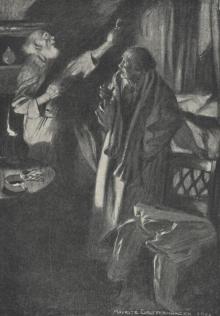 The Castaway
The Castaway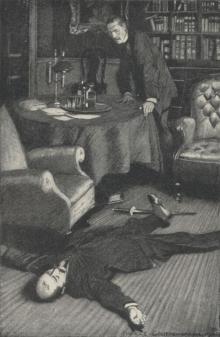 In the Library
In the Library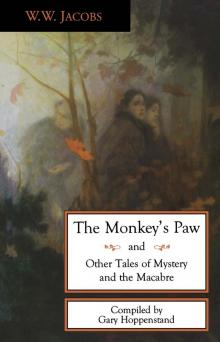 The Monkey's Paw and Other Tales Of Mystery and the Macabre
The Monkey's Paw and Other Tales Of Mystery and the Macabre